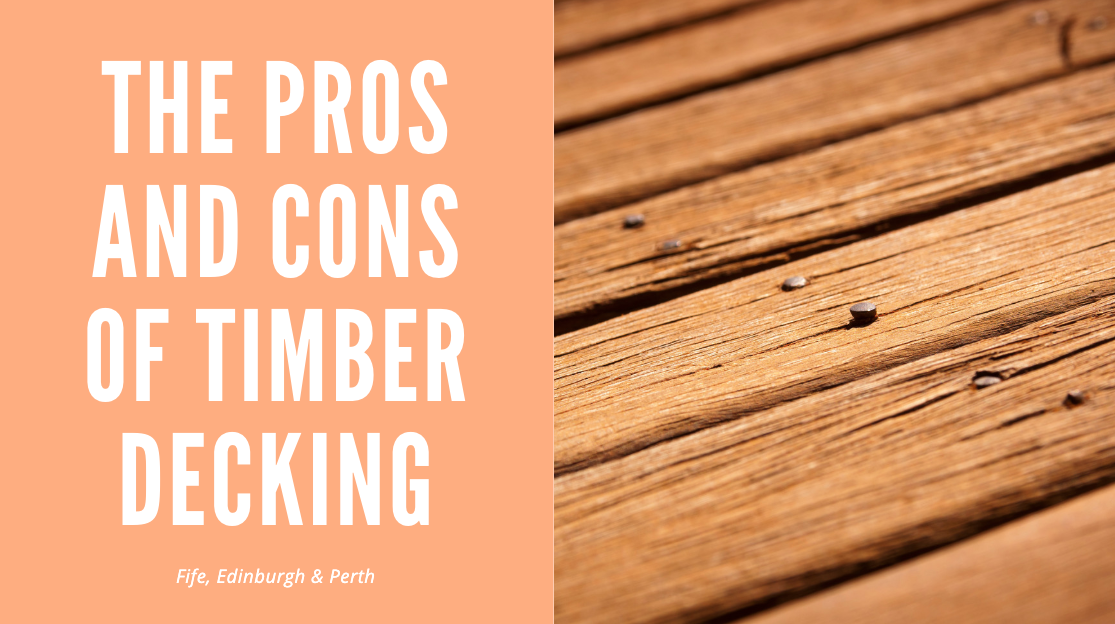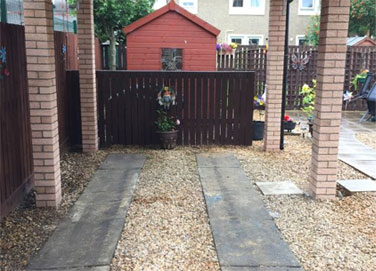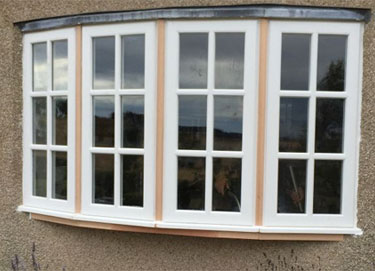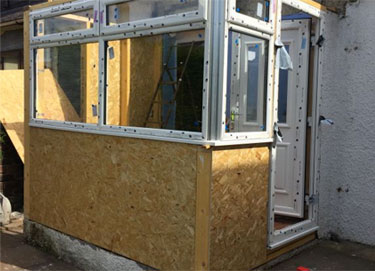So you know it is time to replace the decking in your garden but you are unsure whether composite decking is the right choice for you?
There are pros and cons for anything, but more importantly we want to explain the pros and cons of timber decking for you.
Before you start on such a critical project, it’s important to know that decking options have grown over the last several years, bringing new choices in composite plastic and wood products from which to construct your deck.
Related content:
Pros and Cons of Composite Decking
Timber is the classic choice for outdoor decking. Despite material advancements in the decking market timber remains one of the most popular options. But, is it the best?
We explore the pros and cons of timber decking for you in this blog.
Pros Of Timber Decking
Pros:
Depending on the type of wood you choose, in the short term timber can be the most budget-friendly option. Pressure treated wood has the lowest material cost of any decking type.
Timber offers a more natural look. Sometimes you need the rustic charm timber can offer. Timber has a natural warmth that perhaps can’t be achieved by plastic or metal decking options. Timber can also be stained in various colours and finished with a number of textures and styles.
With timber such as pressure treated wood, redwood and cedar labour costs can be low. With some sources citing that these materials have some of the lowest upfront installation costs. It is easy to work with as it can be cut, shaped and sanded quite simply.
Redwood and cedar timber decking materials are less prone to warping than cheaper alternatives. If good quality wood is used they can also be more resistant to rotting and insects.
Timber decking is flexible and can be easy to cut up and rearranged in to new styles and layouts.
Hardwood decking options can have a life expectancy of 40+ years and require less maintenance than cheaper alternatives.
Cons Of Timber Decking
Cons:
You get what you pay for. Cheaper timber options have the lowest life expectancy or 10-15 and then only if properly maintained. It can scratch and stain easily and can be prone to cracking and splintering.
Timber decking is high maintenance, it requires painting and staining annually which can add to the cost of the decking. It will also need to be cleaned and resealed every year or so. Upkeep can be expensive and time consuming and boards may need to be replaced if weather damaged.
The more durable hardwood timber options can be expensive both in materials and labour. The need for pre-drilling and made-to-measure designs can up labour and design costs.
Though timber is considered a renewable material though it still involves cutting down trees. Sourcing good, environmentally conscious timber could take a lot of time and research.
What are the alternatives?
Still undecided? Let’s take a quick look at some alternatives to timber decking:
Composite decking: composite decking is a mixture of recycled wood pulp, like sawdust, and plastic which is formed in to long boards. They are designed to look and feel like timber decking but are more or less maintenance free.
Plastic decking: plastic decking, like its composite counterpart, is maintenance free. There are options on the market to source 100% recycled plastic decking.
Fibre cement decking: made from a mix of cement, sand and cellulose fibre it is finished smooth to the touch. It is resistant to warping, rotting, splitting and cracking and can withstand extreme temperatures and most weather conditions. A softer, more modern alternative that requires little maintenance but can be expensive initially.
Aluminium decking: aluminium decking is durable, with a longer life expectancy than timber that can resist damage in the sun, rain or snow. It requires little maintenance and is reasonably priced. Despite this, it can be noisy to walk on and can become slippery.
Timber Decking
There are more pros and cons of timber decking however the three in each category above are the main ones that customers should be aware of.
If you are looking for a local installer then get in touch with us today for a quote. We cover Fife, Edinburgh, Dundee, Perth, Falkirk and Angus.





